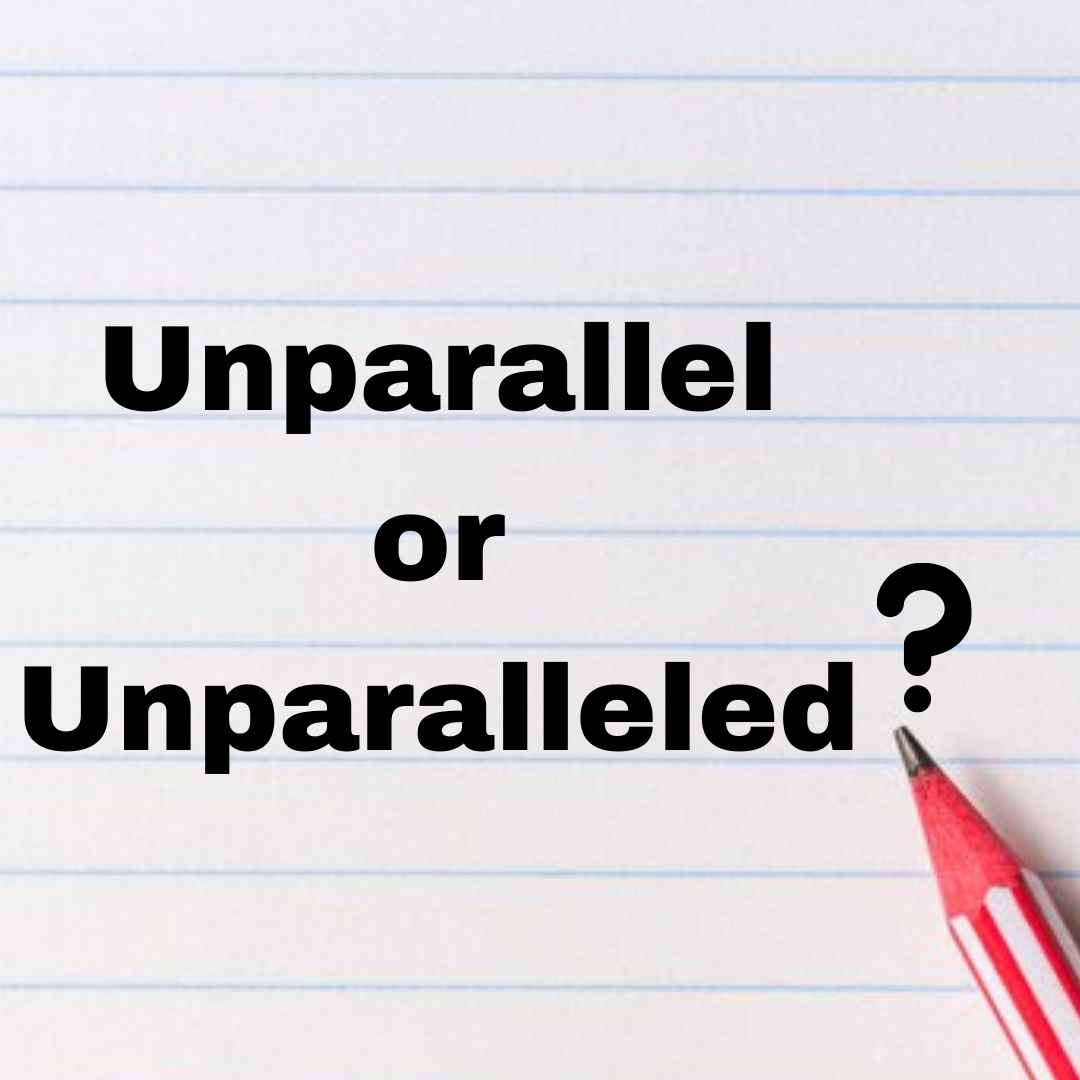Mastering the Use of "Unparalleled" or "Unparallel"

Understanding the difference between “unparalleled” and “unparallel” is essential for clear communication in English. While these words may sound similar, they have distinct meanings and usage. In this guide, we’ll explore the definitions, correct usage, and examples of both words to help you use them confidently.
Definition of “Unparalleled”:
- “Unparalleled” is an adjective used to describe something that is unmatched or without equal.
- Example: The restaurant’s cuisine offers an unparalleled dining experience.
- In this sentence, “unparalleled” emphasizes that the dining experience is unmatched by any other.
Definition of “Unparallel”:
- “Unparallel” is a less common term and is not widely recognized in standard English.
- It could potentially mean “not parallel,” but it’s often considered incorrect or archaic.
- Example: The journey’s unparallel path led us through dense forests and rugged mountains.
- While “unparallel” might be used in some contexts, it’s generally less preferred than “unparalleled.”
How to Choose the Correct Word:
- If you want to express that something is unmatched or without equal, use “unparalleled.”
- Avoid using “unparallel” unless you’re certain it’s appropriate for the context, as it’s less commonly used and may cause confusion.
Examples of Correct Usage:
- Unparalleled: The company’s commitment to customer satisfaction is unparalleled in the industry. Explanation: “Unparalleled” emphasizes that the company’s commitment is unmatched.
- Unparallel: The explorer’s journey took her on an unparallel path through uncharted territories. Explanation: While “unparallel” is used here, it’s less common, and “unparalleled” would be a more widely accepted choice.
Common Mistakes to Avoid:
- Confusing “unparalleled” with “unparallel” and using them interchangeably.
- Remember, “unparalleled” means unmatched, while “unparallel” is less common and may not be recognized by all audiences.
- Always double-check your usage to ensure clarity and correctness in your communication.
- Confusing “unparalleled” with “unparallel” and using them interchangeably.
Learn about : New or Knew Definition
Conclusion:
Understanding the difference between “unparalleled” and “unparallel” allows you to communicate effectively and accurately in English. By using “unparalleled” to describe something unmatched and being cautious with “unparallel,” you can convey your message clearly and confidently in both spoken and written English.